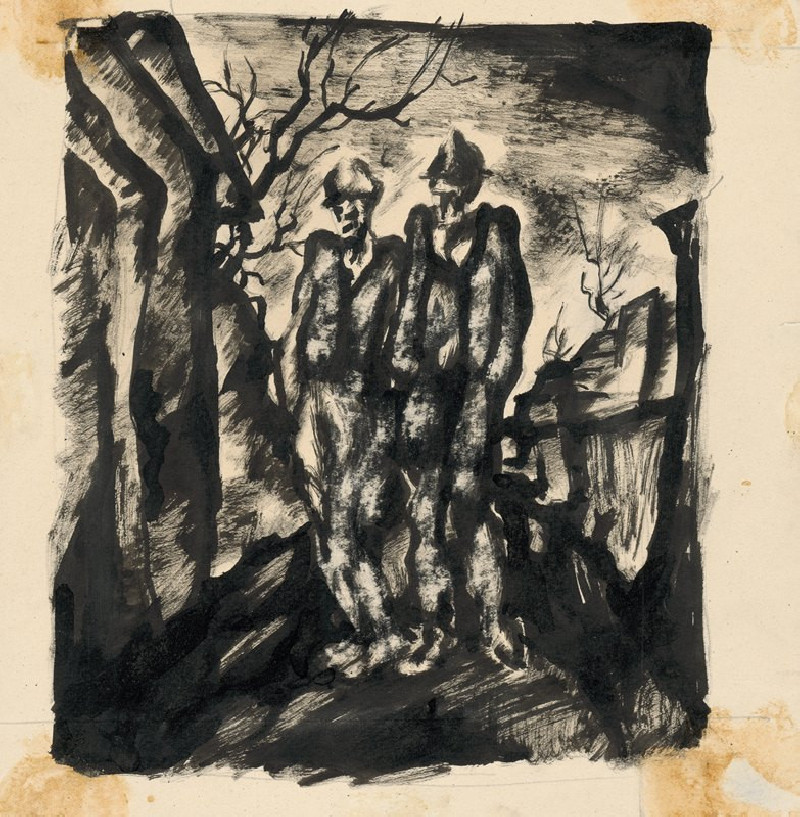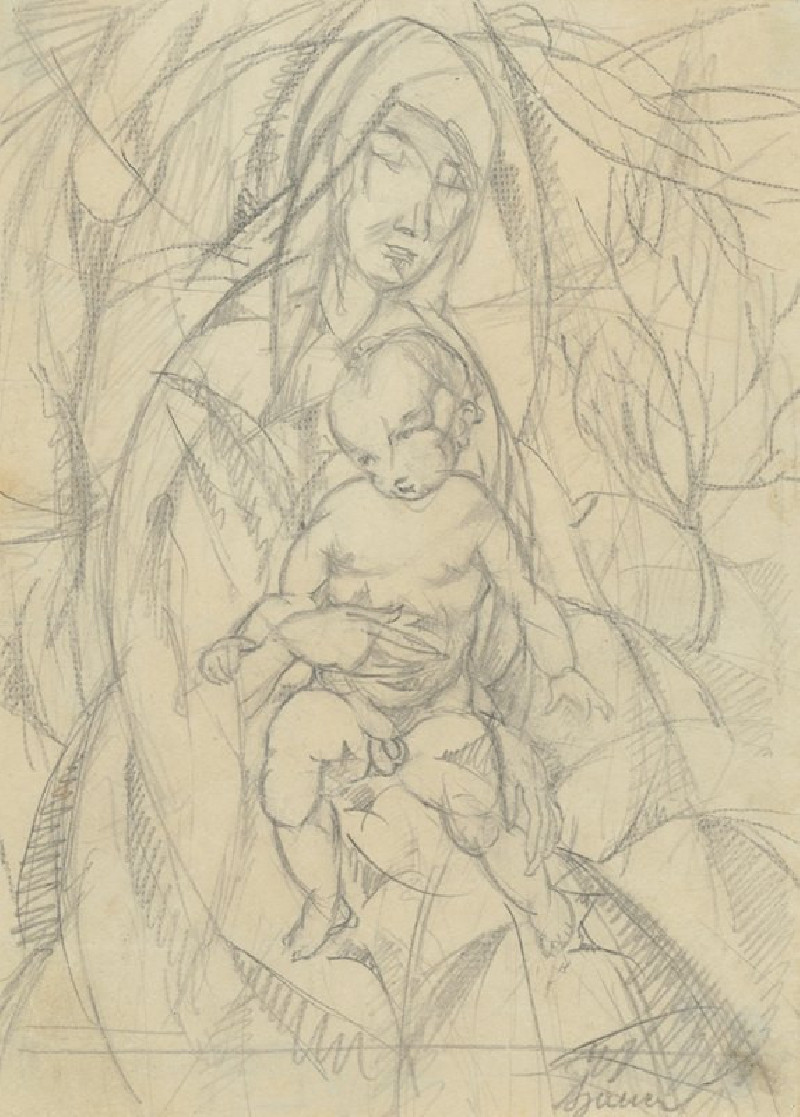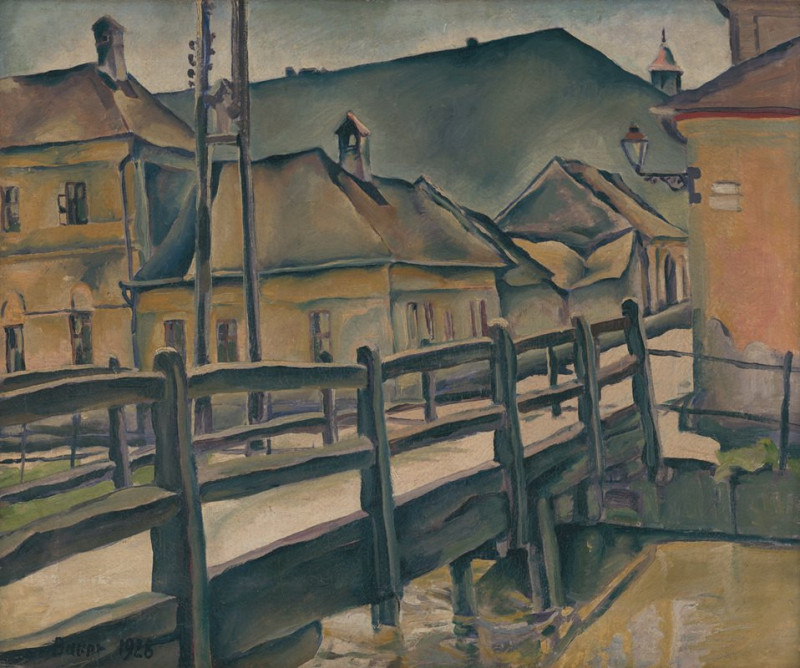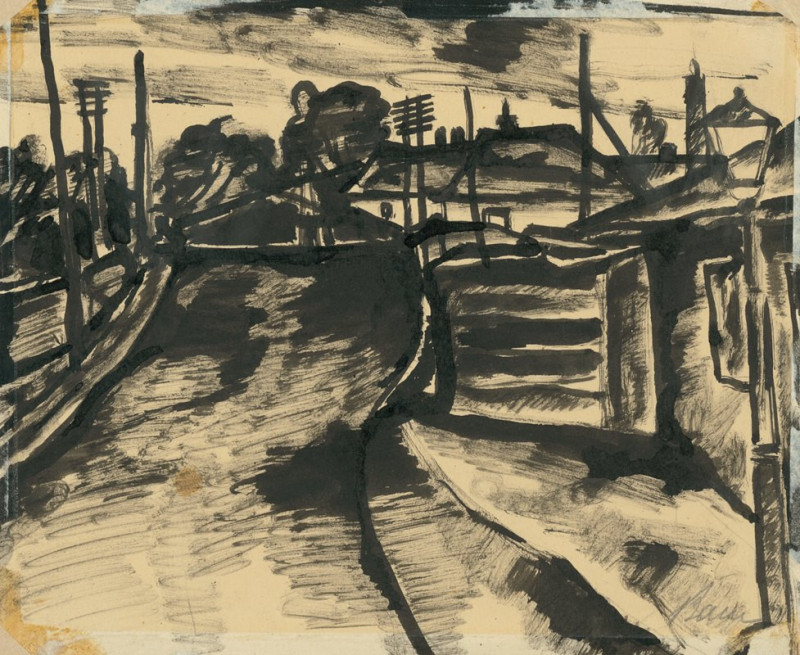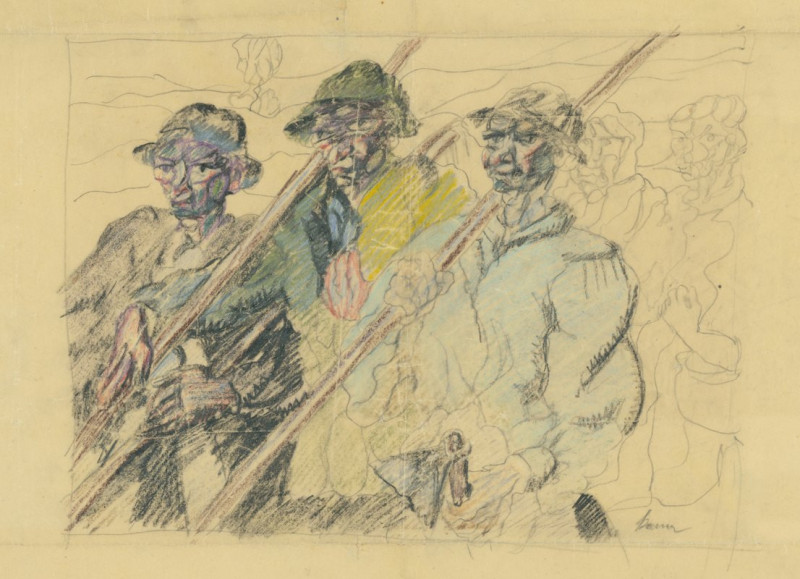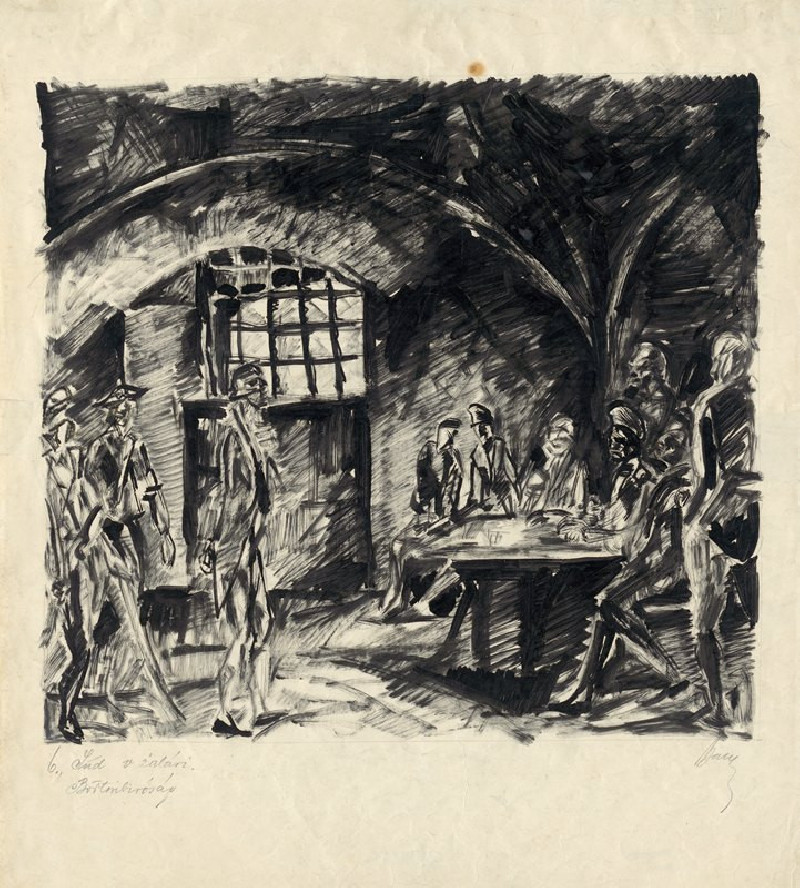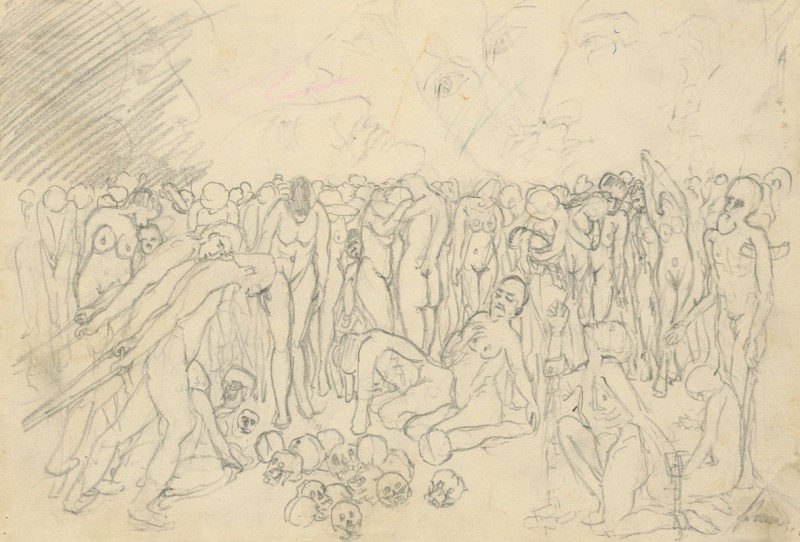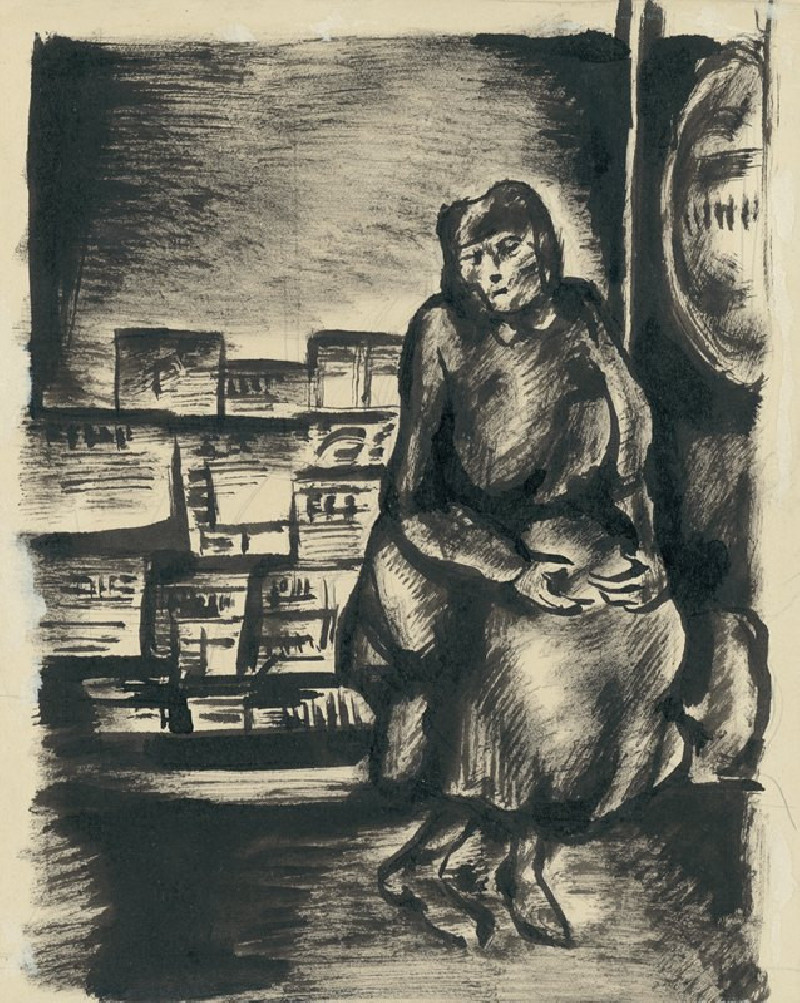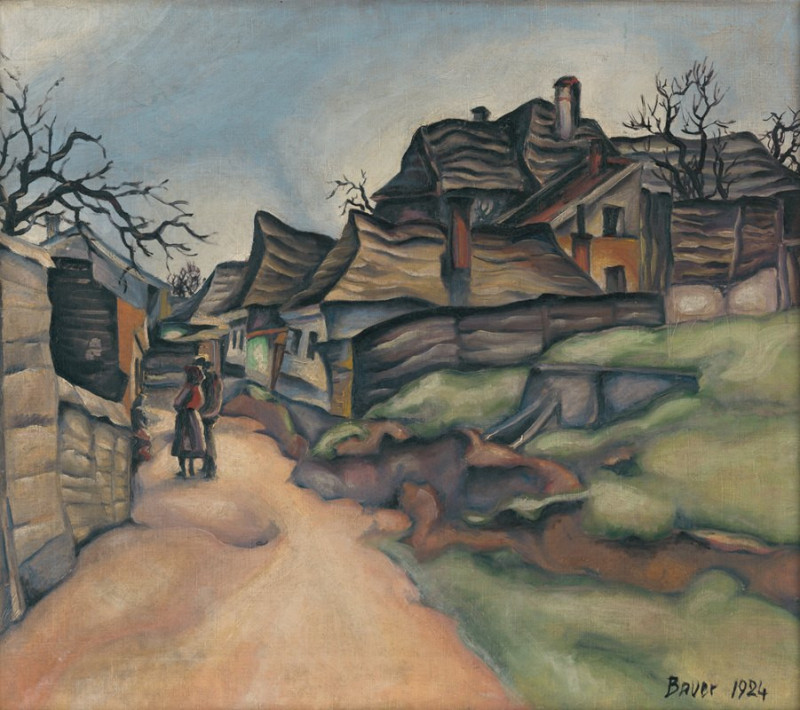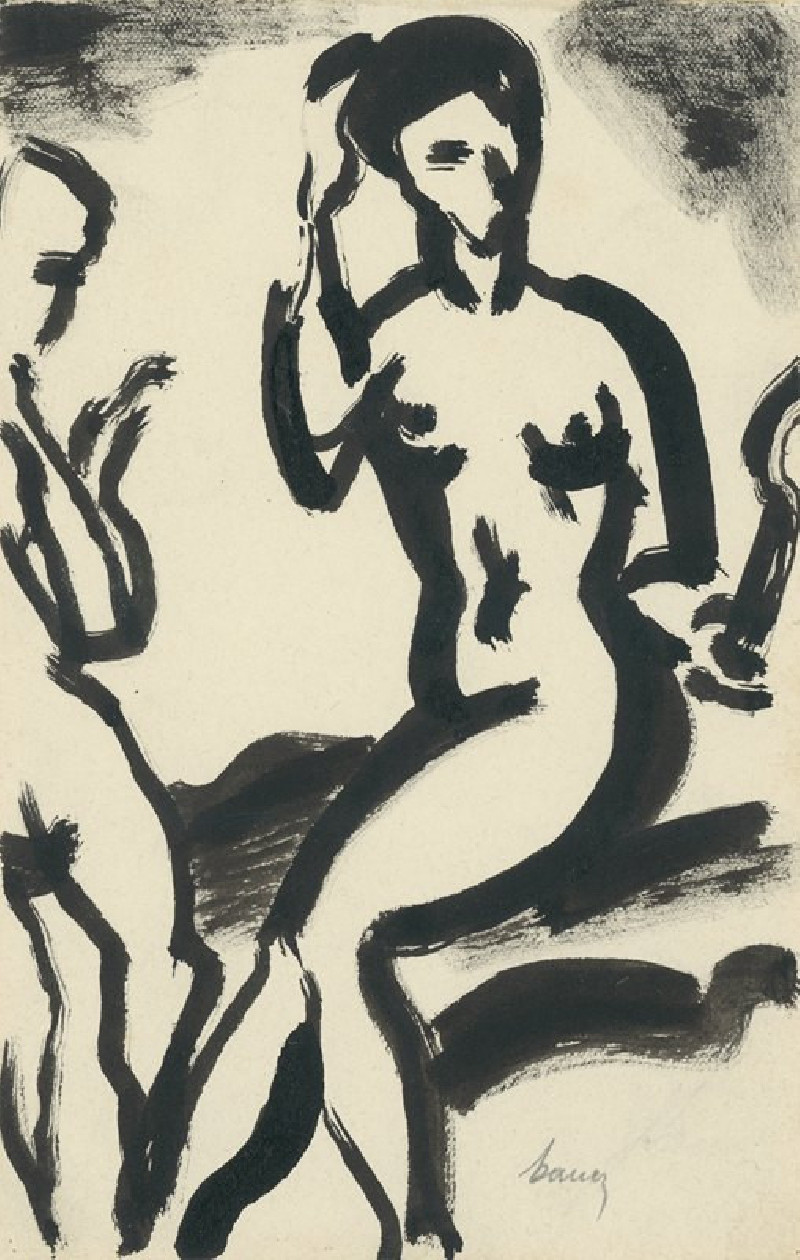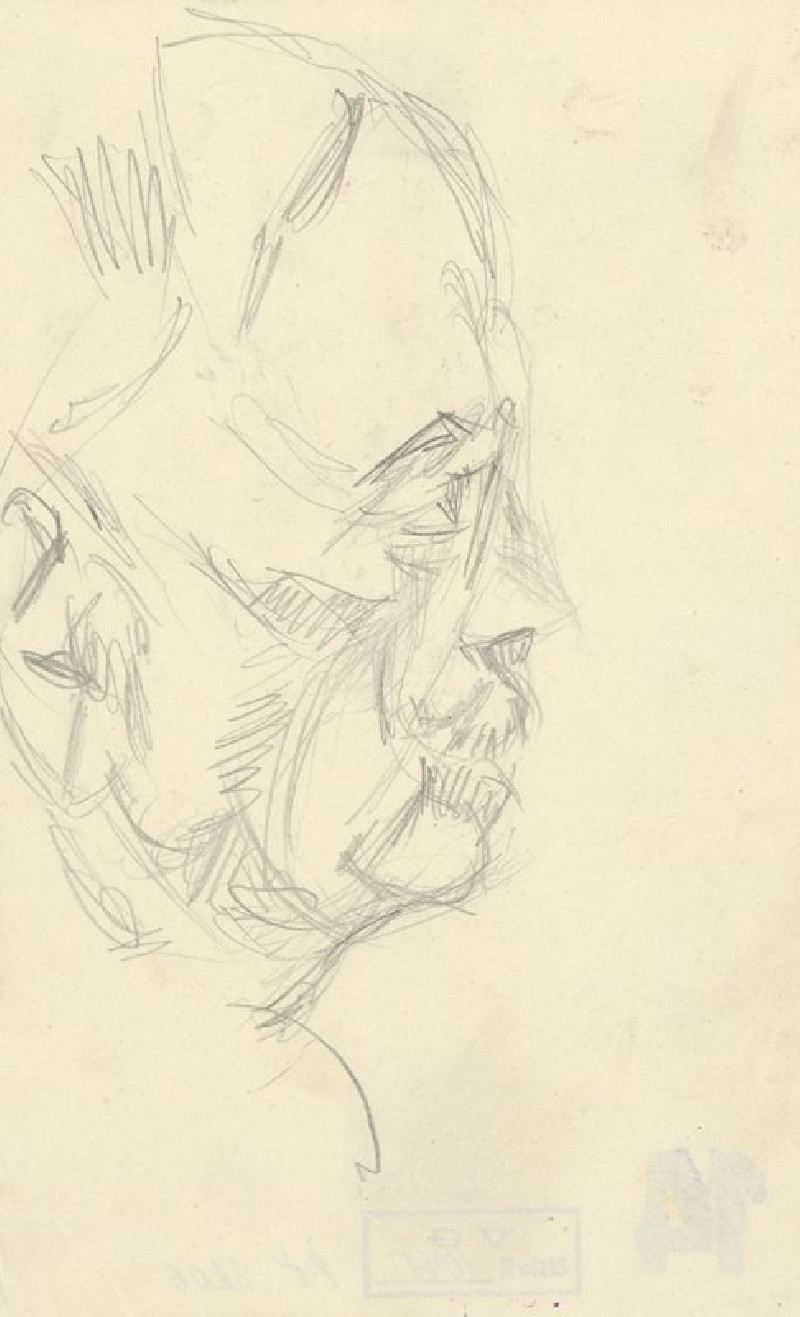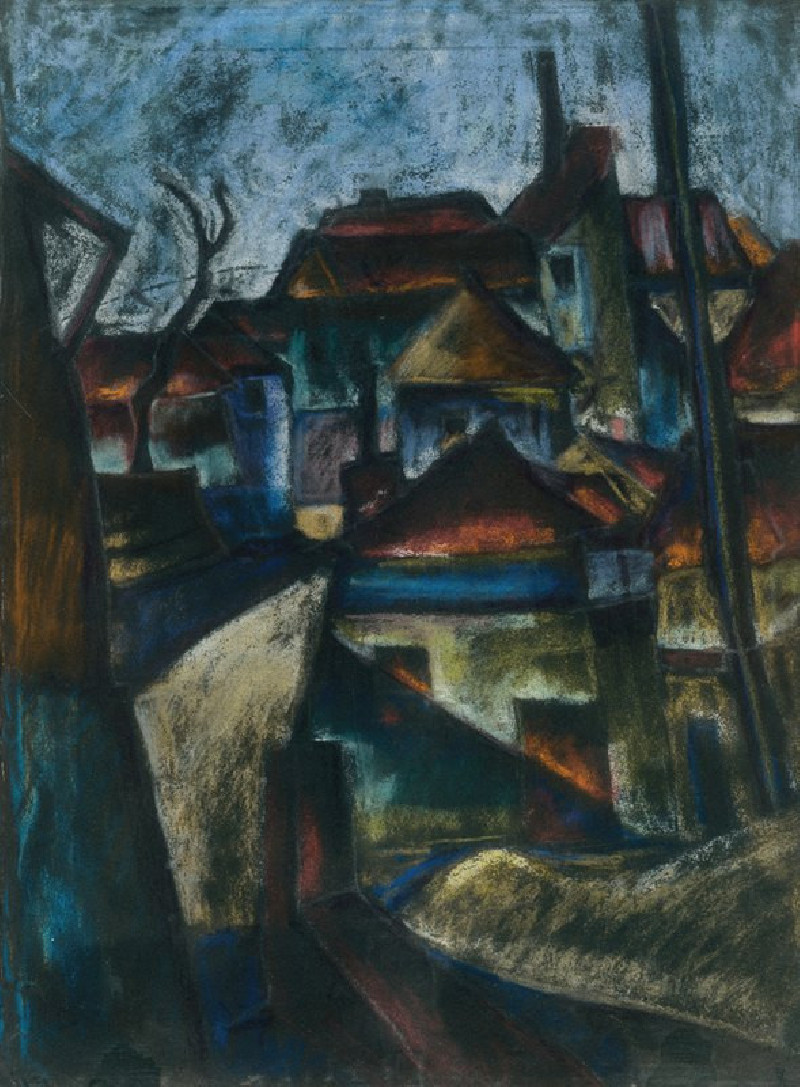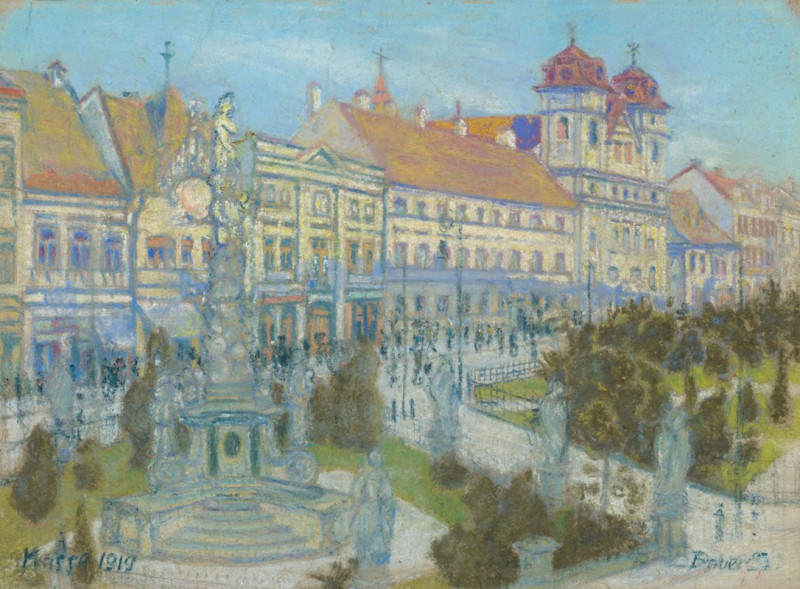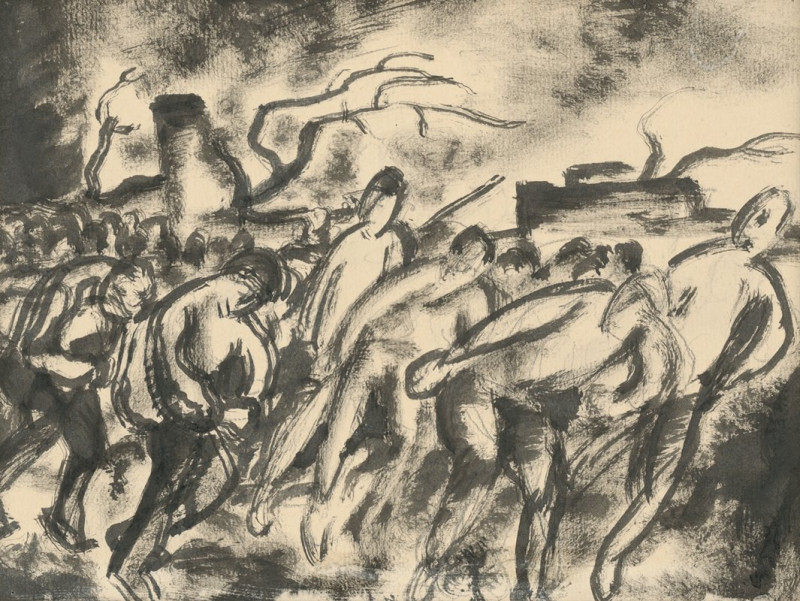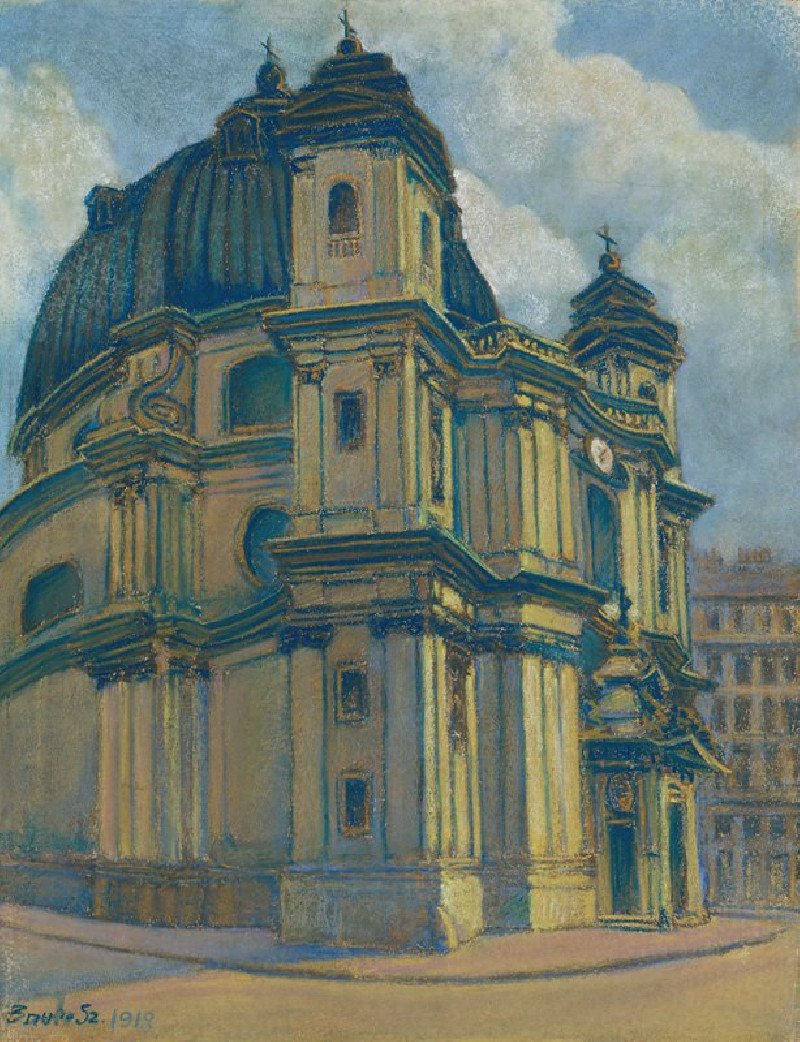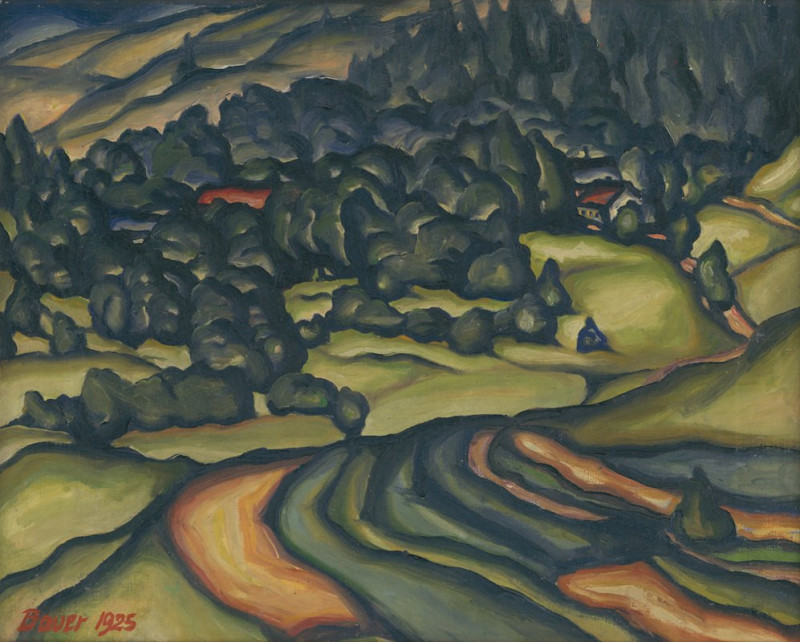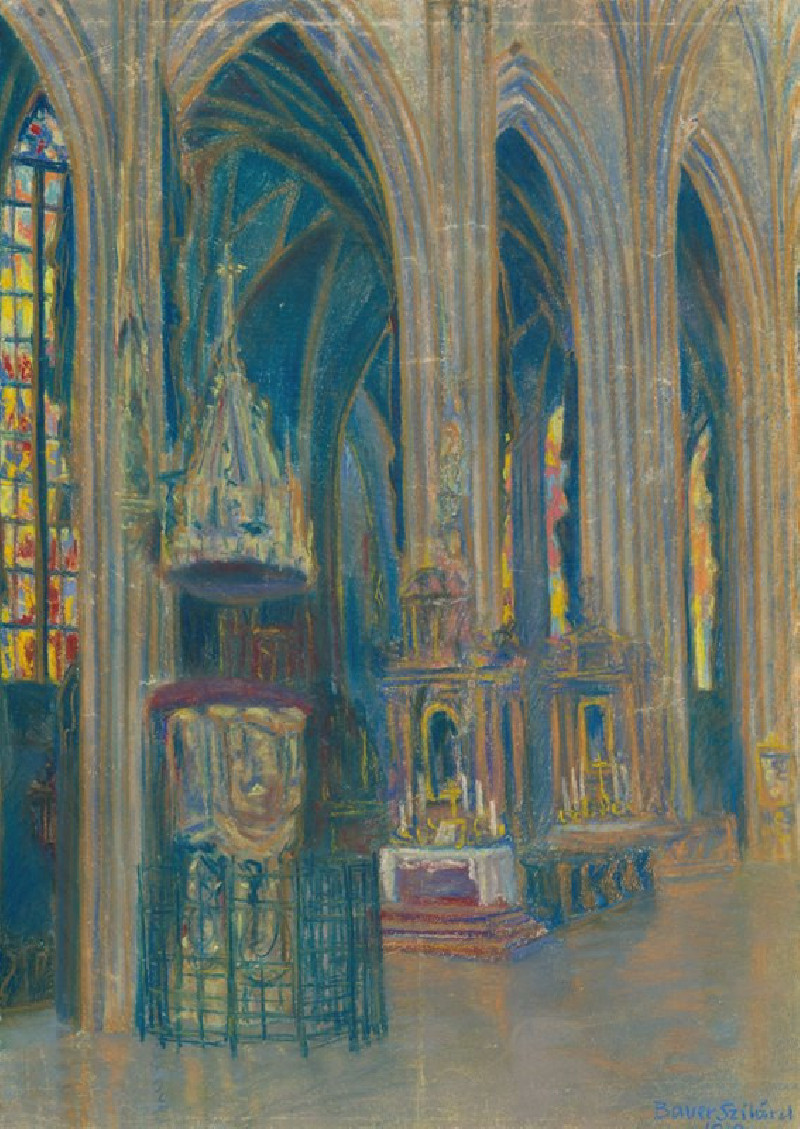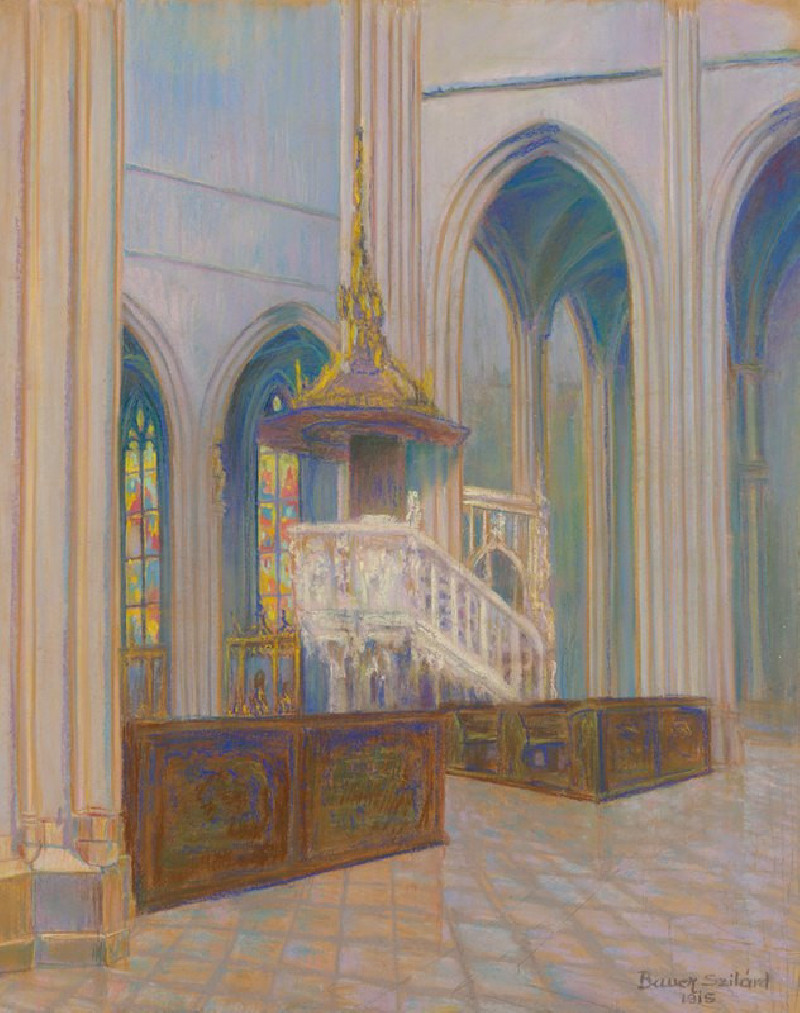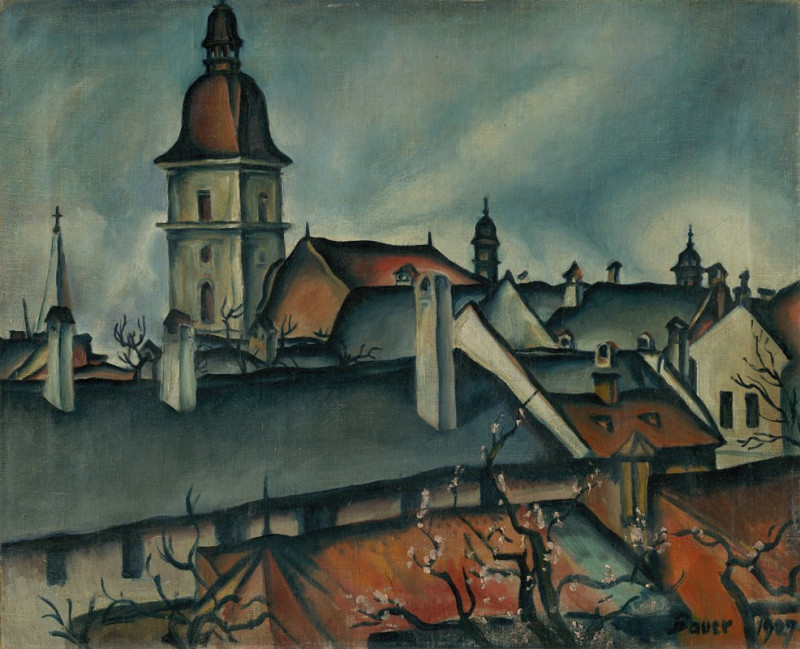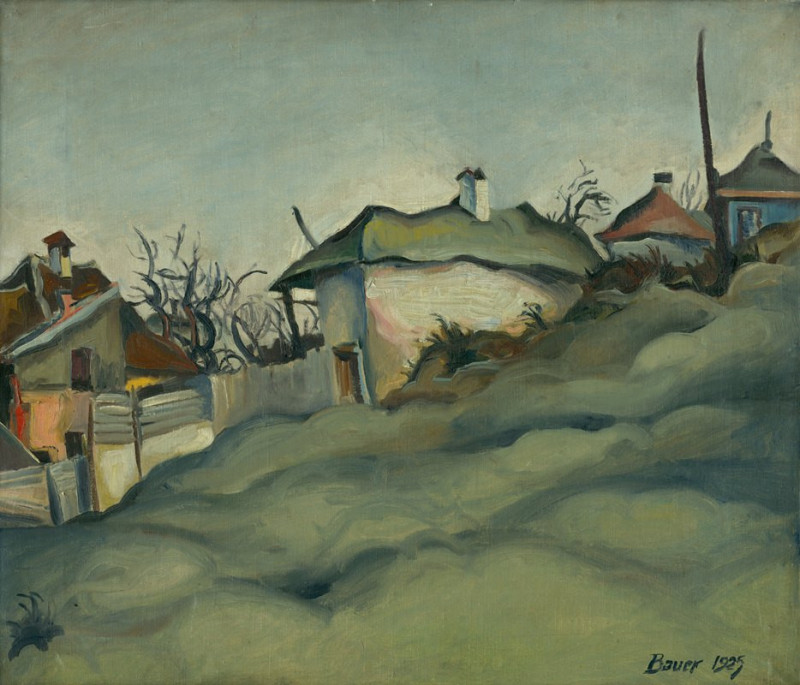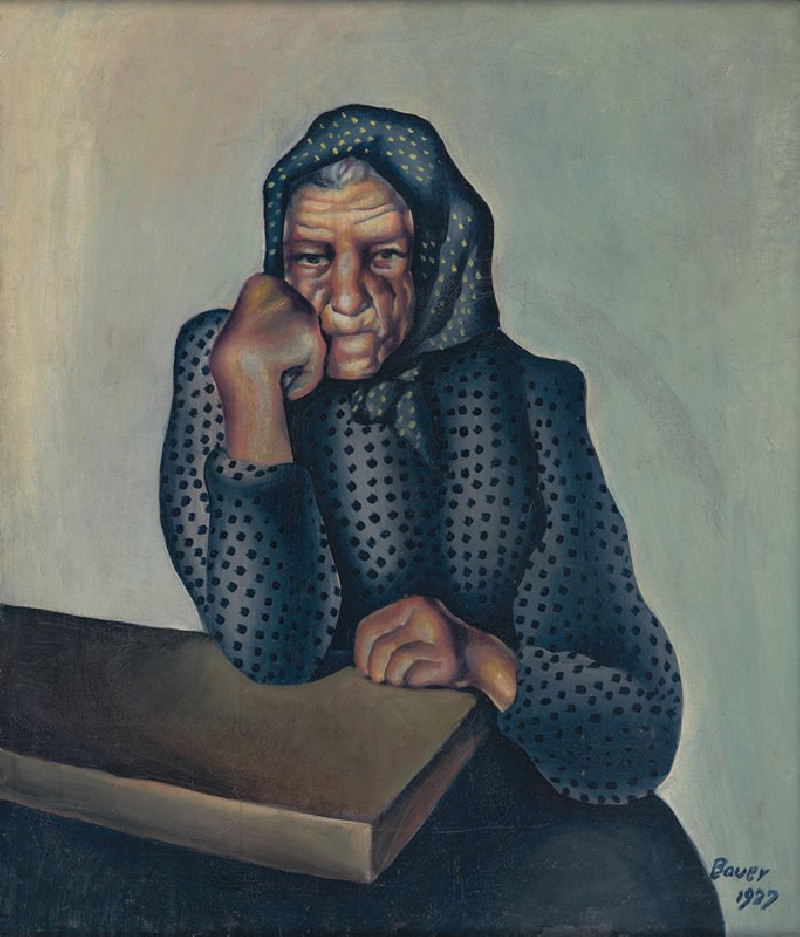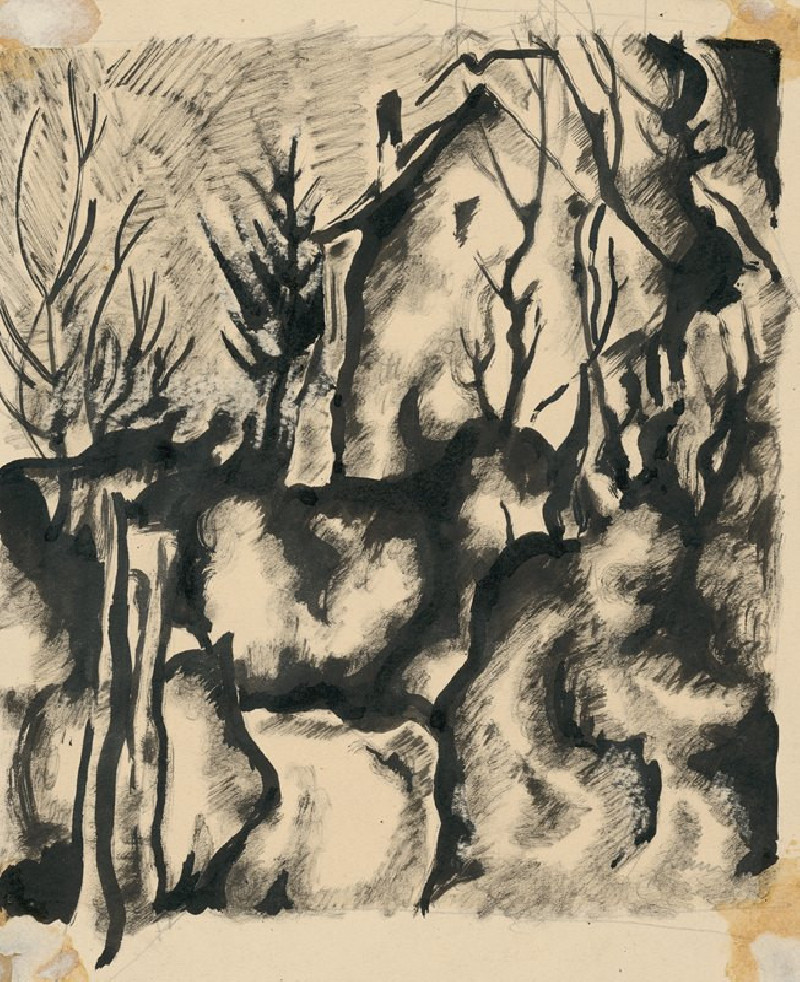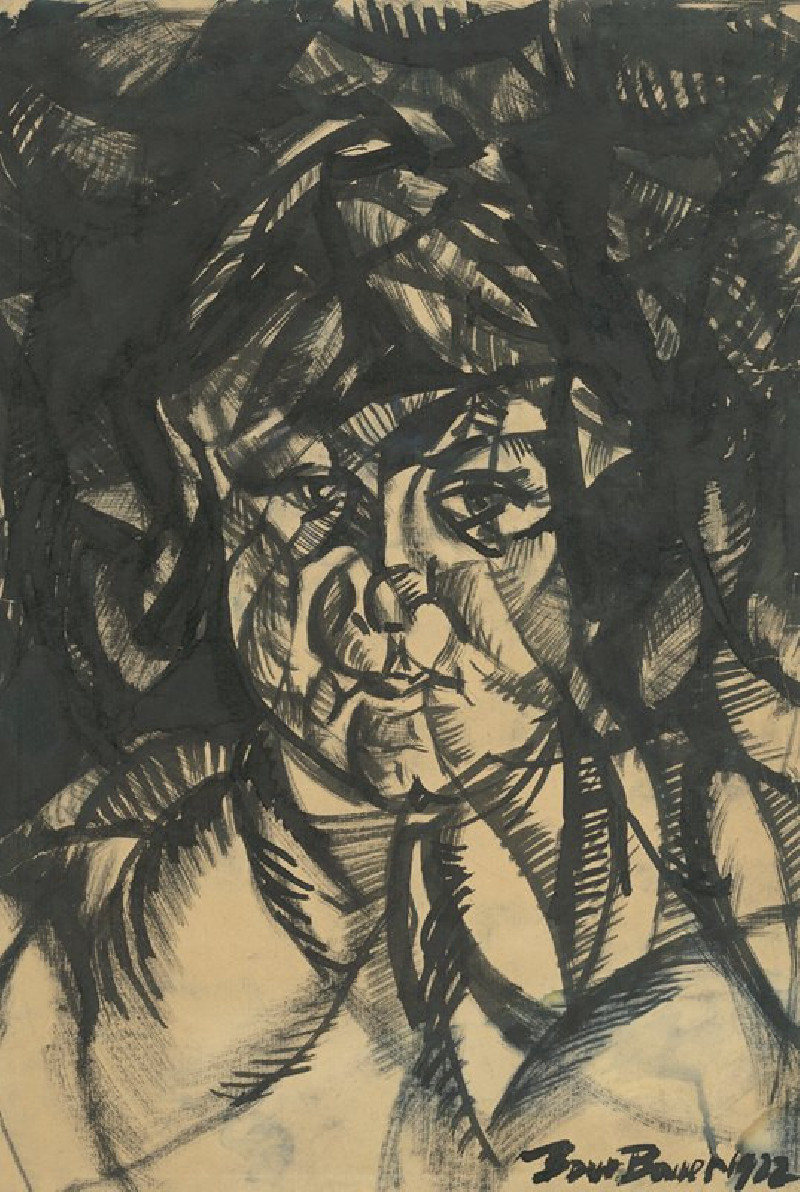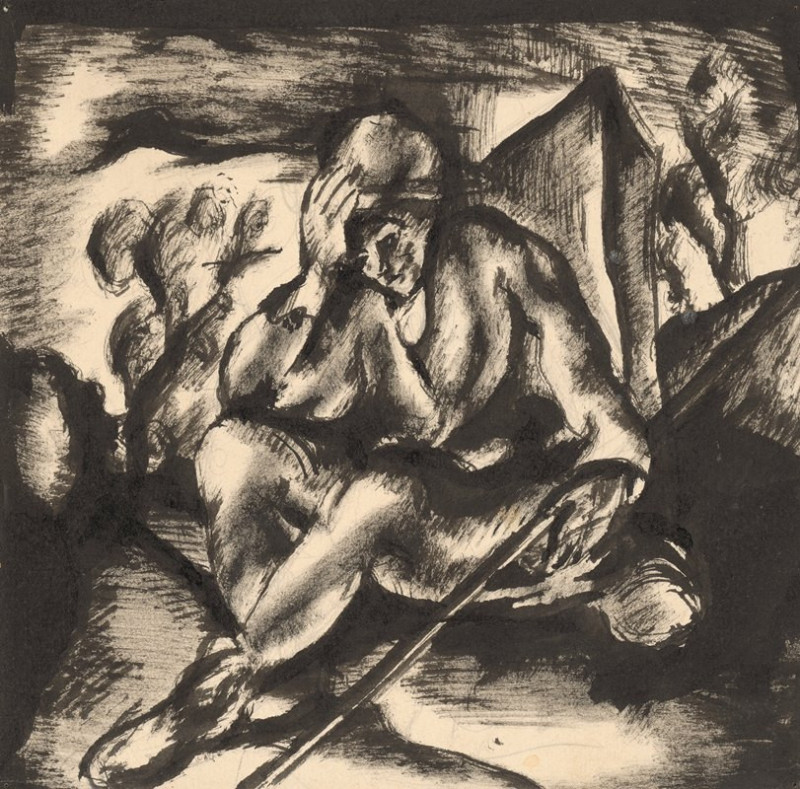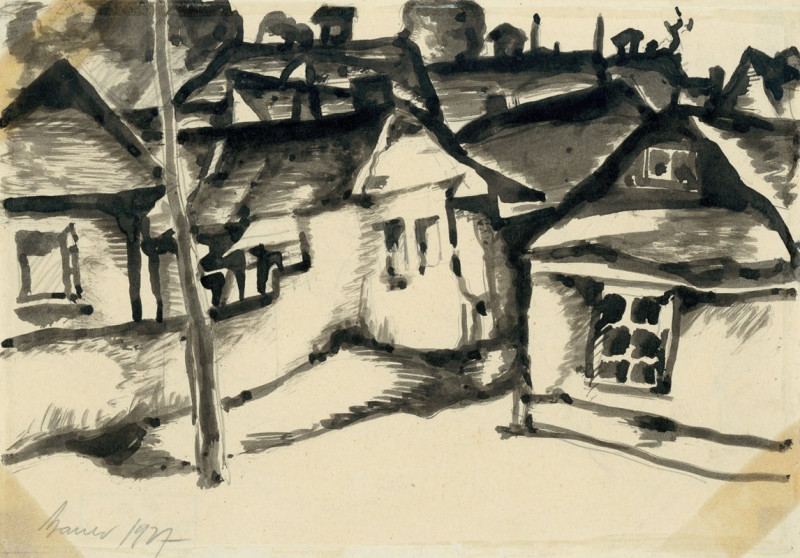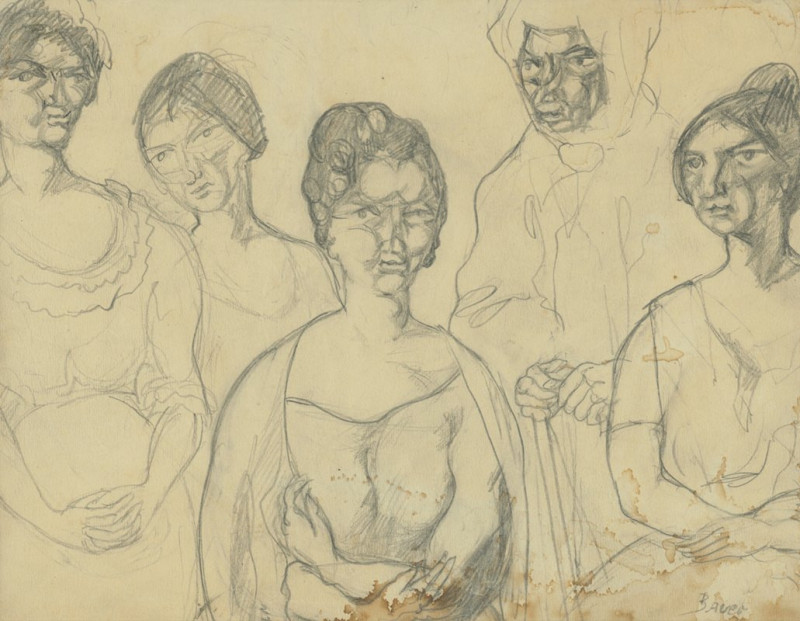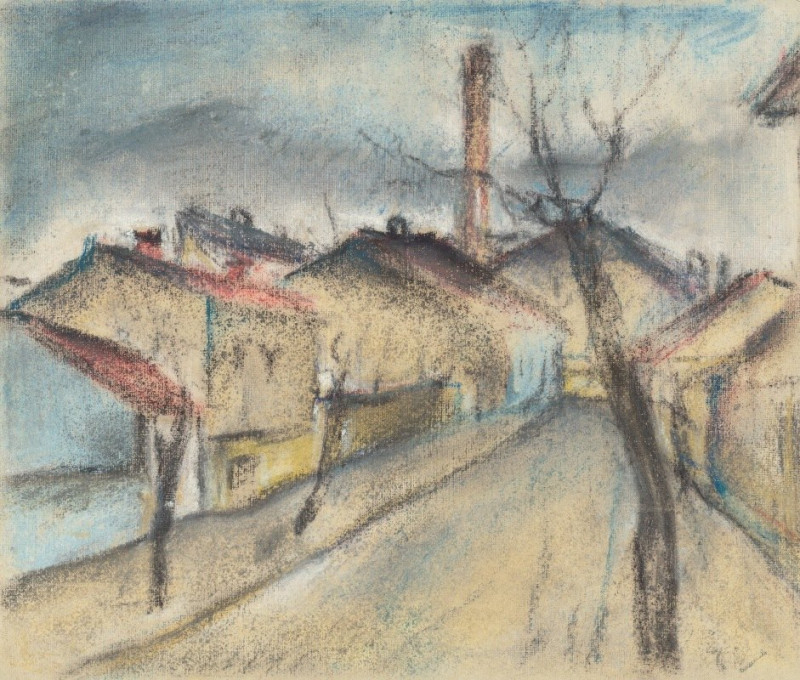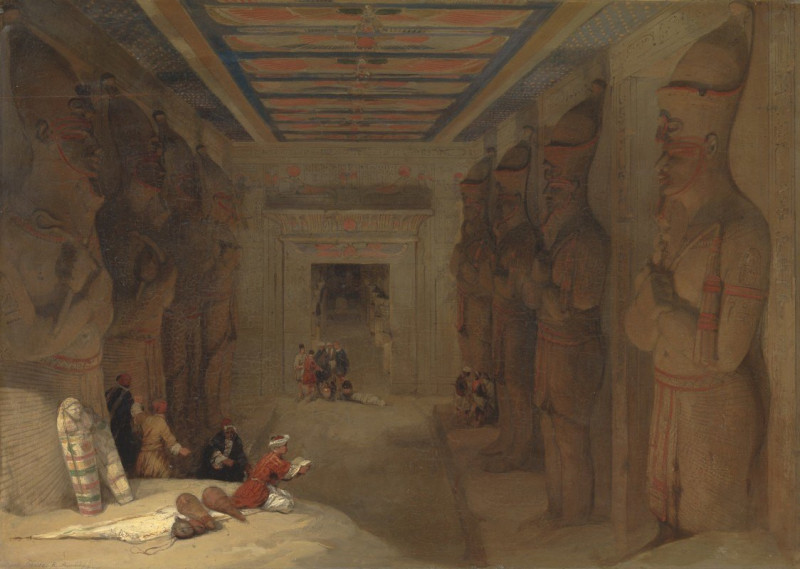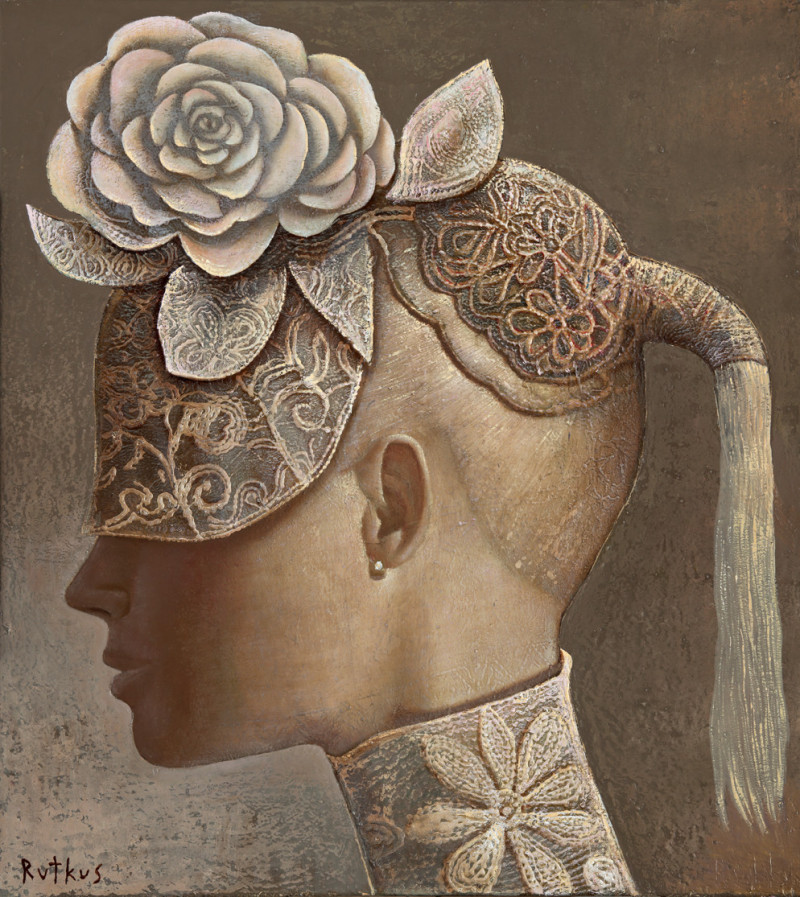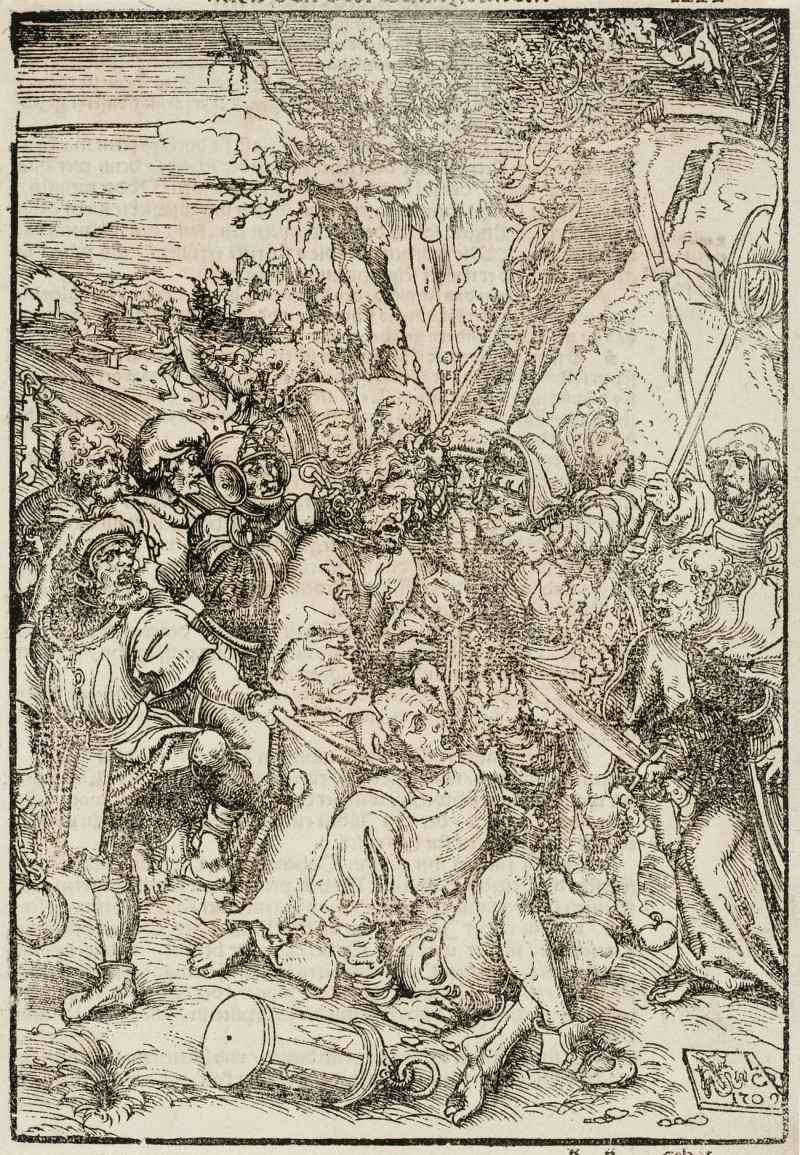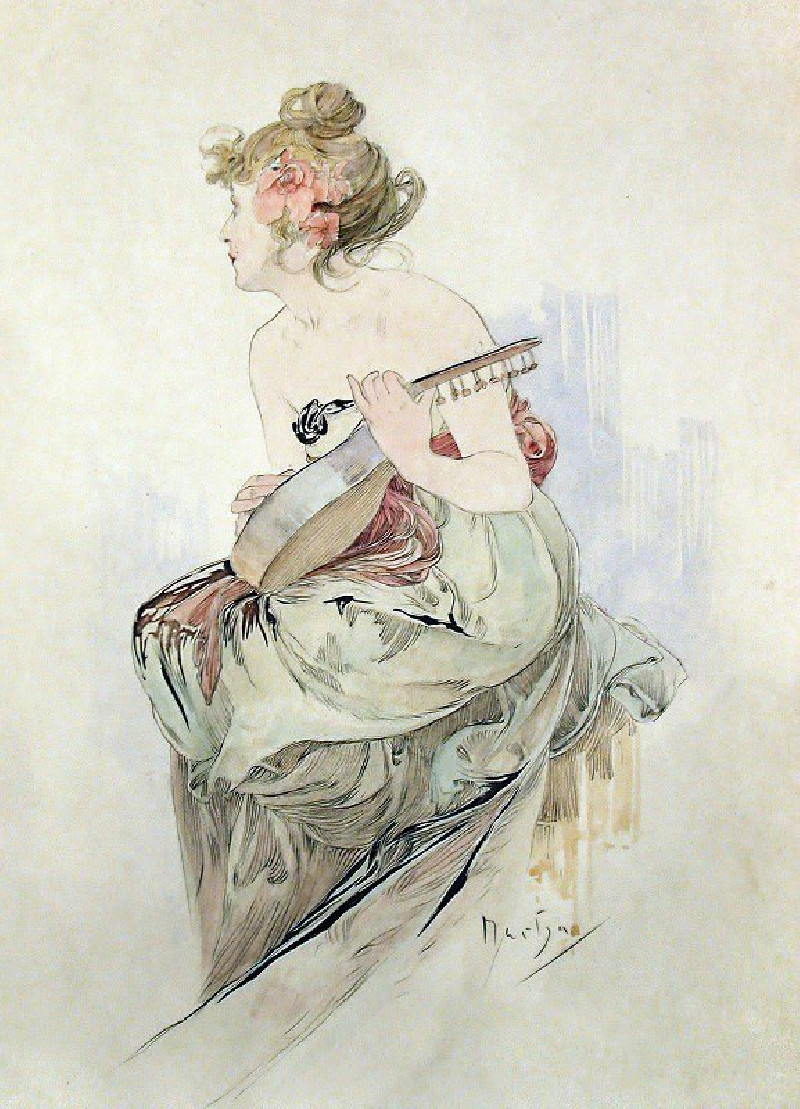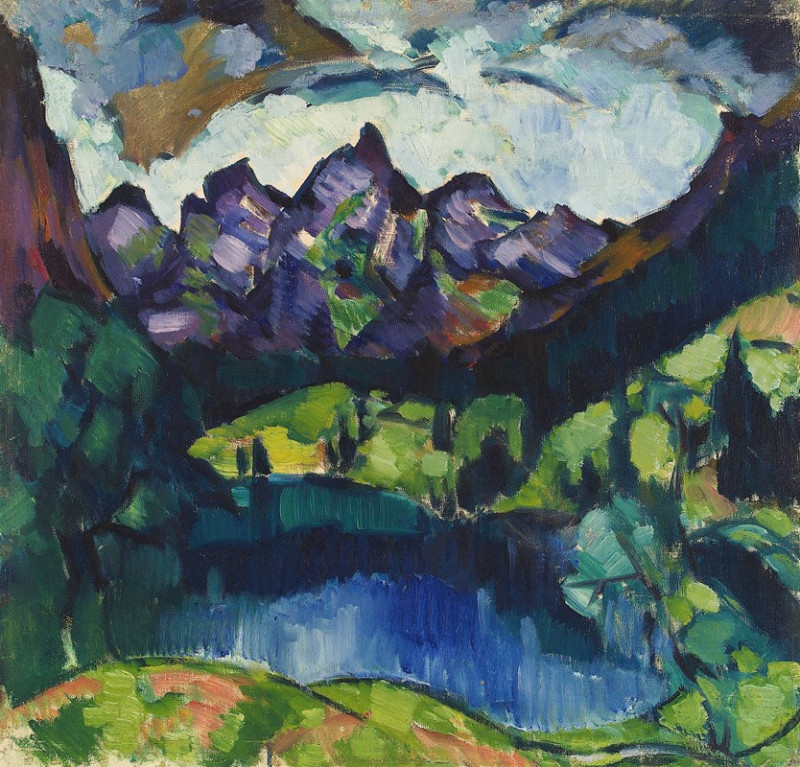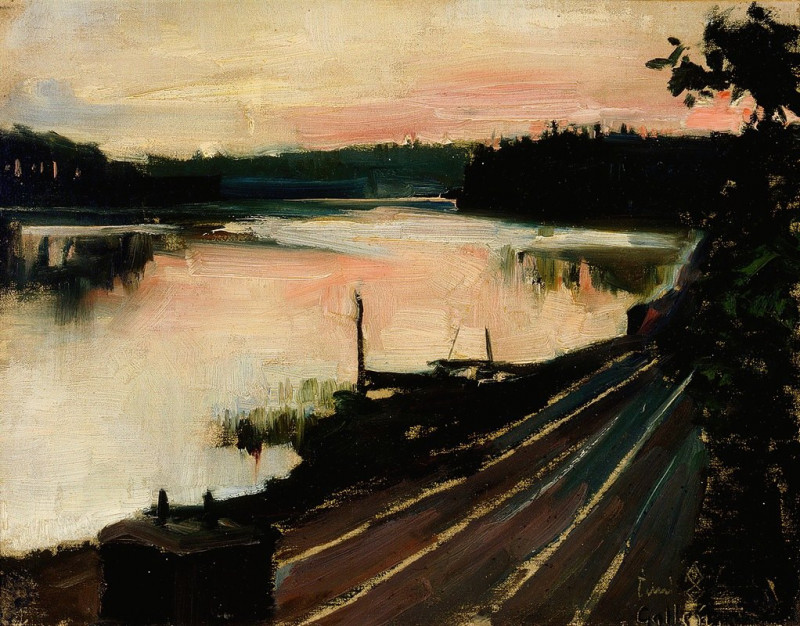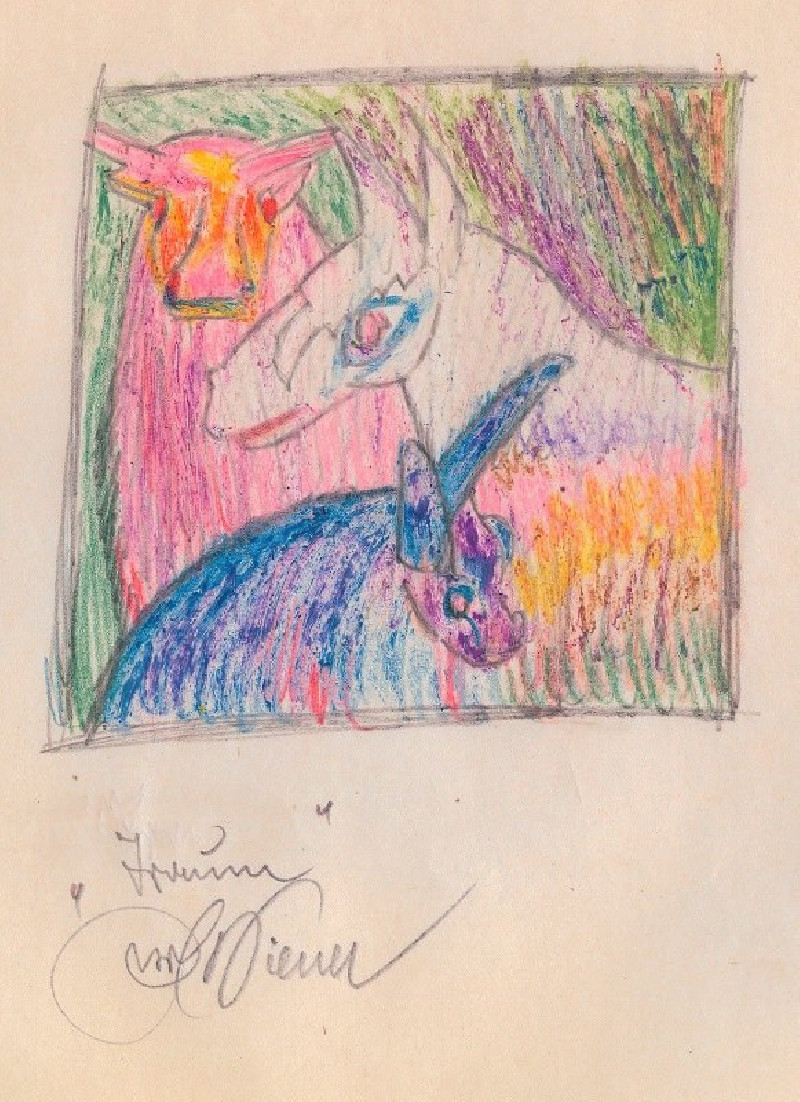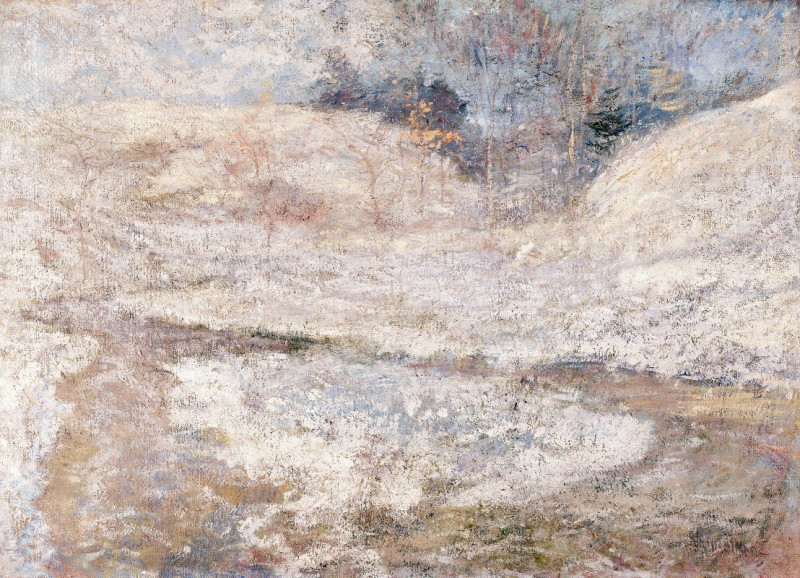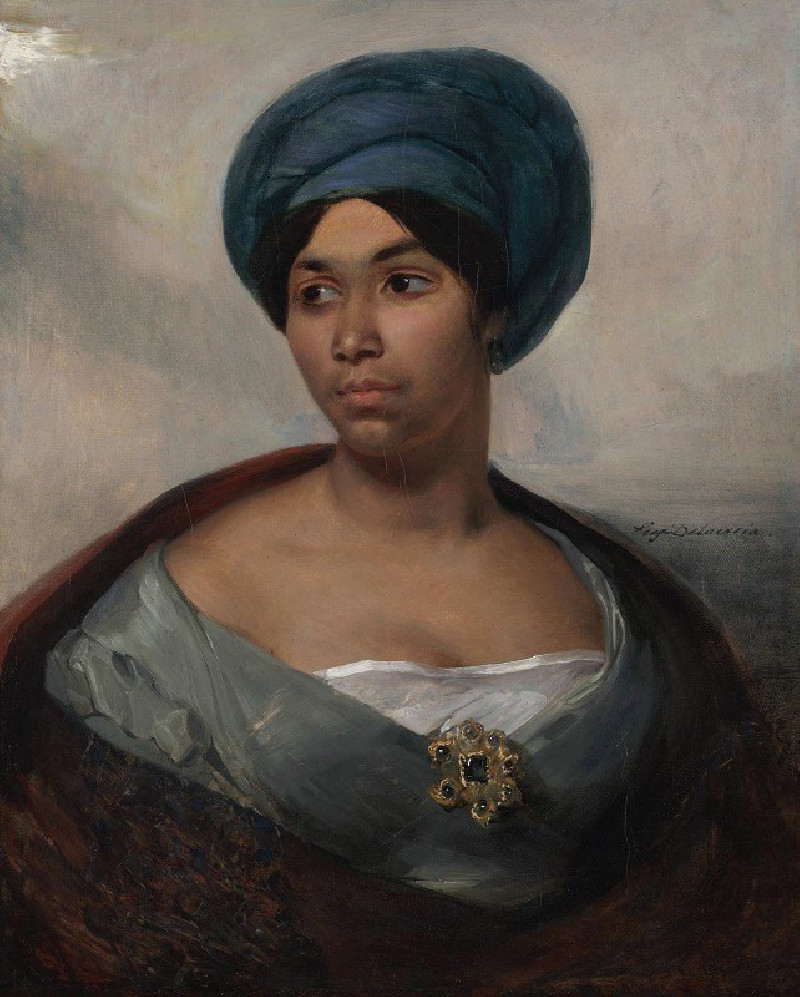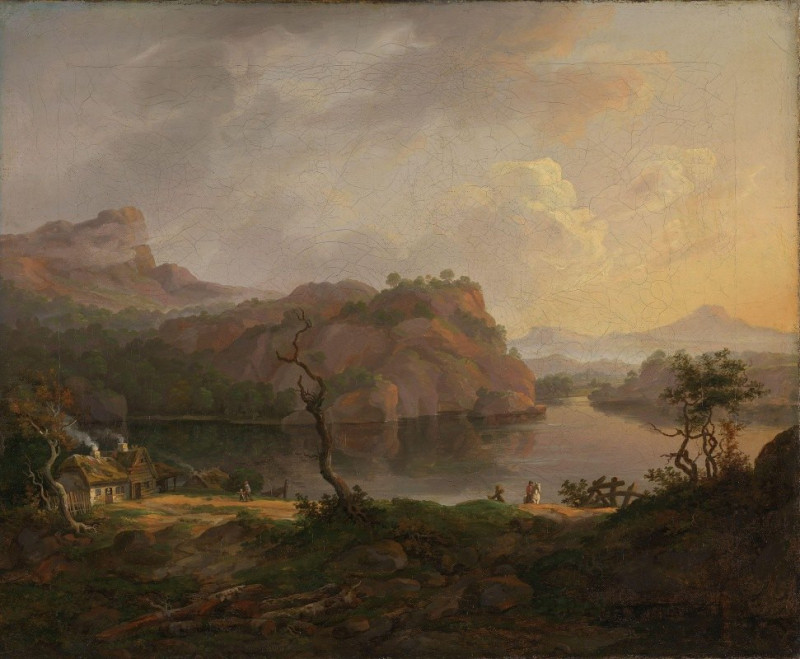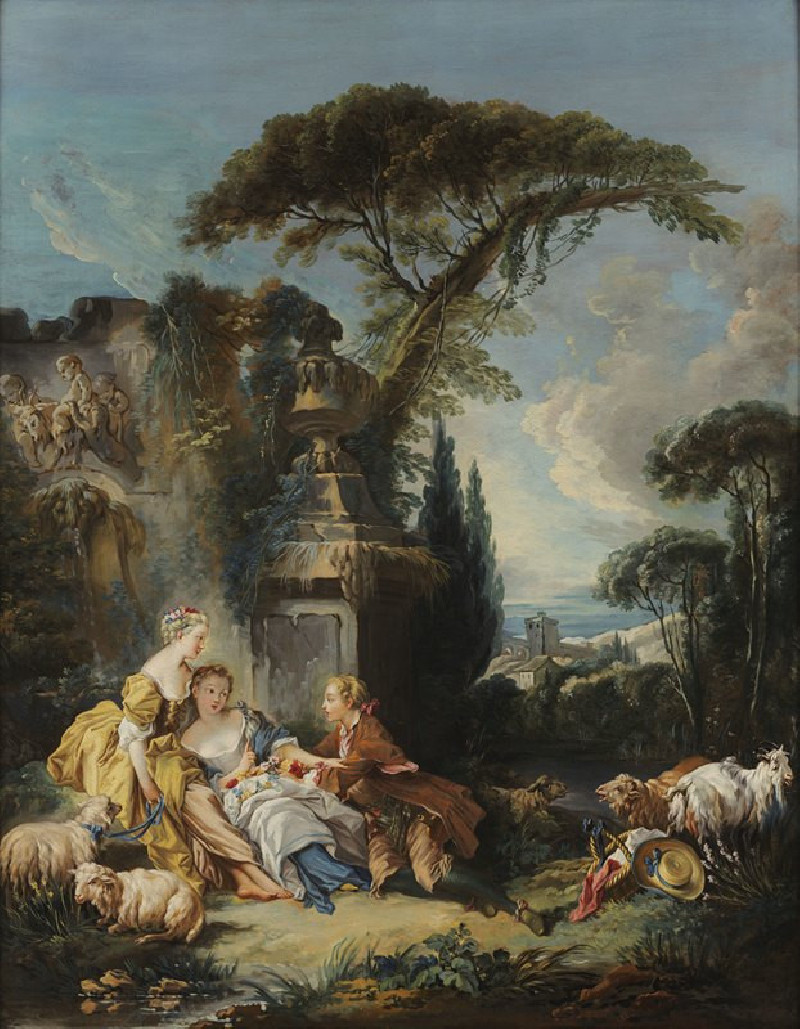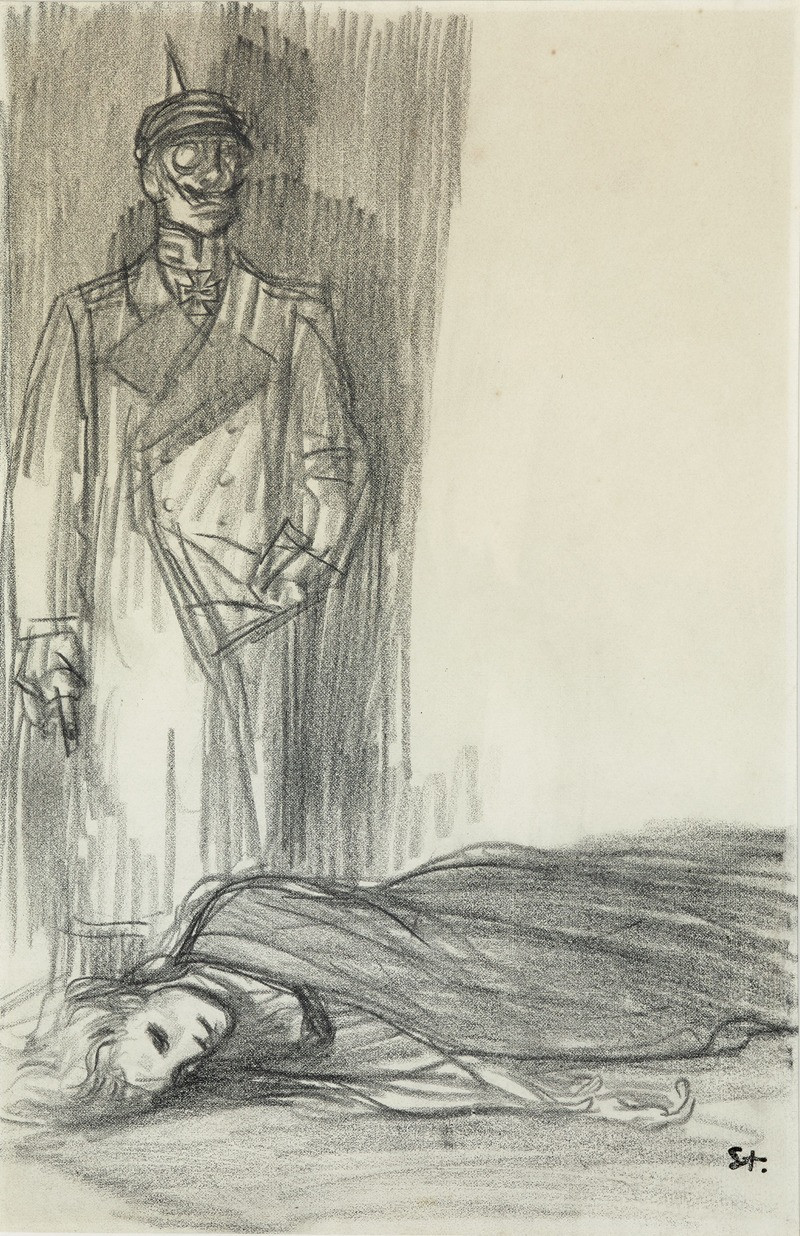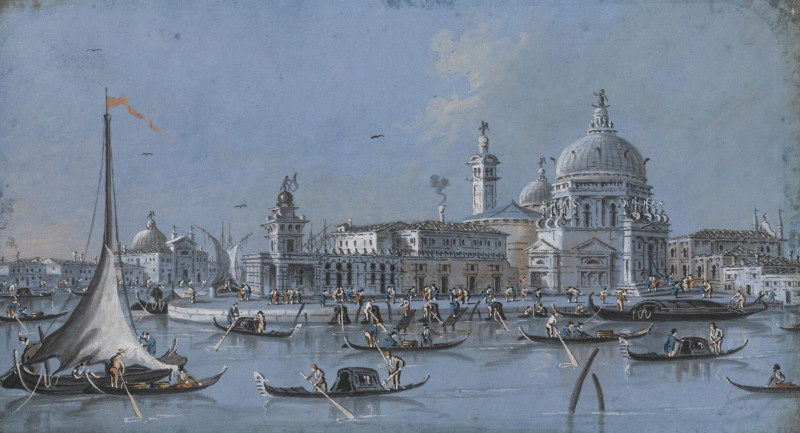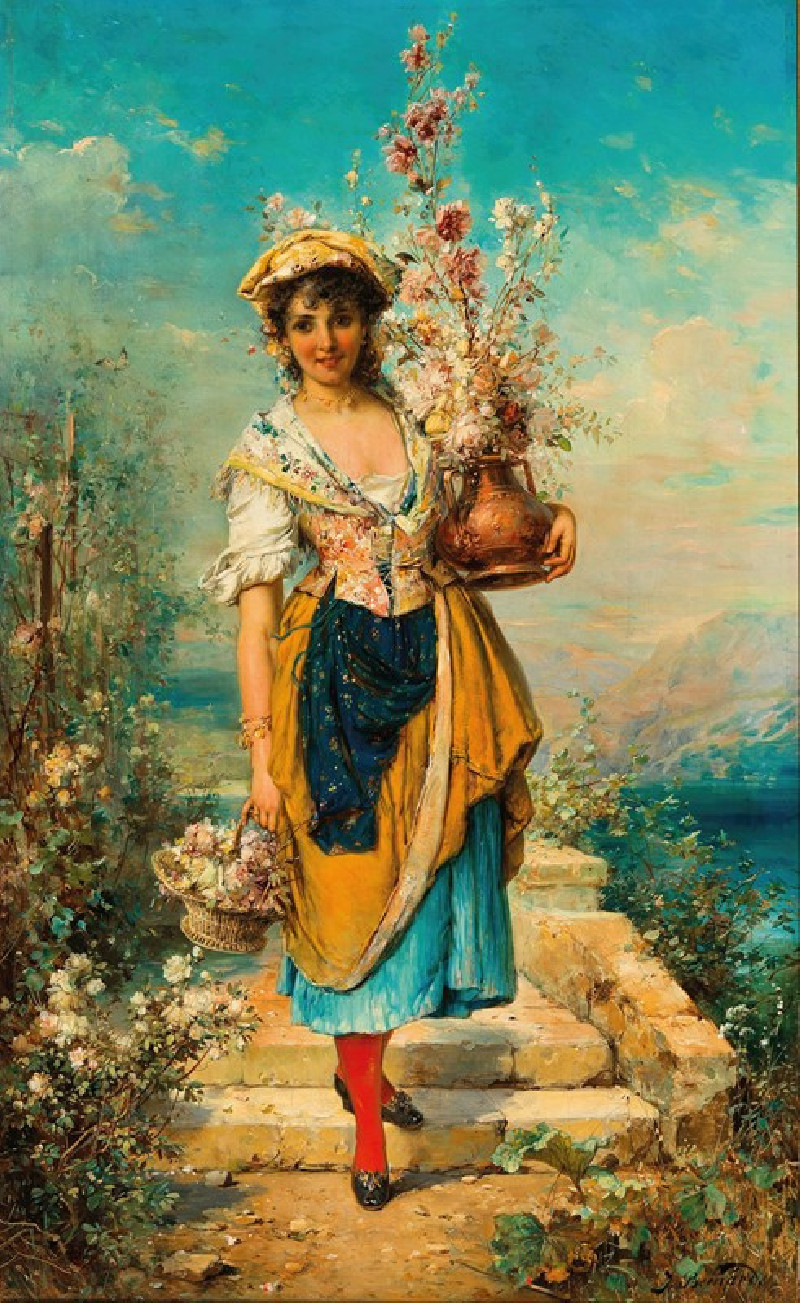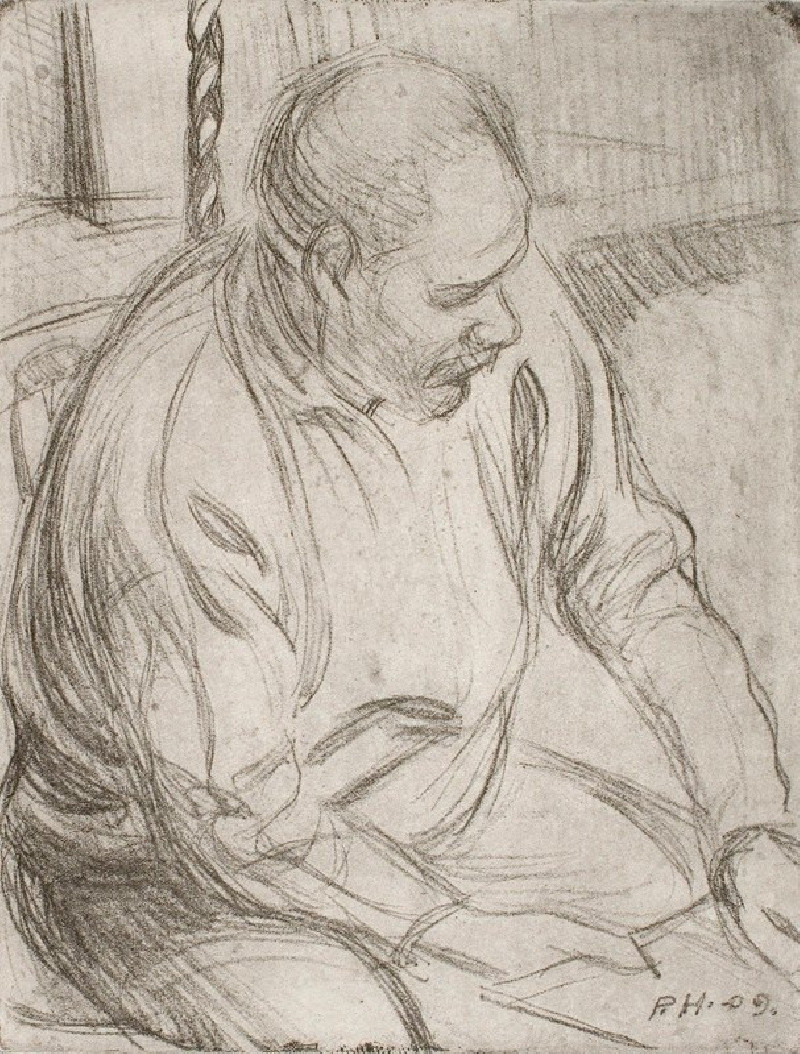Dvaja tuláci (1924–1927)
Technique: Giclée quality print
Recommended by our customers
More about this artwork
Artist: Konštantín Bauer Date: 1924–1927"Dvaja tuláci" by Konštantín Bauer is a riveting example of expressionist art, executed between the years 1924 and 1927. This ink painting presents a poignant scene of two figures, interpreted as vagrants, or wanderers, clad in overcoats and hats, seemingly emerging from or disappearing into a bleak, wooded landscape. The artwork's predominantly dark tones create an atmosphere of desolation and introspection, hinting at the deeper psychological or existential themes Bauer often explored.The stark contrast of light and shadow, a hallmark of Bauer’s expressive technique, dramatizes the painting, highlighting the rugged features of the figures and the gnarled, bare trees that surround them. The fluid, almost aggressive strokes lend a sense of motion and raw emotion to the wanderers, as if they are captured in a moment of silent conversation with the harsh world around them.This piece can be seen as a reflection on human resilience and solitude, inviting viewers to contemplate the journeys—both literal and metaphorical—that define our existence.
Delivery
Returns
Konštantín Bauer was a Slovak painter.
Konštantín Bauer was born on November 24, 1893 in Slovenská Ľupča. He spent his childhood in Banská Bystrica. At the age of fifteen, he moved with his parents to Košice, where he graduated from high school. After graduating in mechanical engineering in Budapest in 1915, he worked briefly as an engineer in Novo Mesto pod Šiatrom. From 1916 to 1918 he worked as a railway engineer in Transylvania and then as a civilian employee at the Ministry of War in Vienna.

